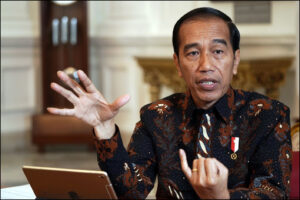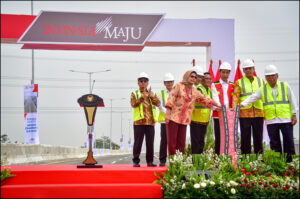Joko Aims To Clean Jakarta’s Bureaucracy
When Joko Widodo, popularly known as Jokowi, was elected as the Governor of Jakarta in 2012, one of his key promises was to reform and clean up the city’s bureaucracy. Recognizing the significant role that a well-functioning bureaucracy plays in the development and progress of a city, Jokowi set out on a mission to improve efficiency, transparency, and accountability in the administrative processes of Indonesia’s capital.
The Challenges Faced by Jakarta’s Bureaucracy
Underneath the bustling streets and towering skyscrapers of Jakarta lies a complex bureaucratic system that often struggles to keep up with the demands of its fast-growing population. The challenges faced by Jakarta’s bureaucracy are multi-fold and require decisive action to overcome.
1. Corruption and Collusion
Corruption has been a long-standing issue within Indonesia’s bureaucracy, and Jakarta is no exception. The endemic nature of corruption has not only hindered development but also damaged public trust in government institutions. Jokowi aims to tackle this problem head-on by introducing stringent measures to prevent corruption and hold accountable those involved in corrupt practices.
2. Inefficiency and Red Tape
Navigating through the bureaucratic maze can often be an arduous task for citizens and businesses alike. Lengthy procedures, excessive paperwork, and unnecessary red tape have been major pain points for those interacting with Jakarta’s bureaucracy. To address these issues, Jokowi plans to streamline administrative processes, reduce unnecessary regulations, and implement digital solutions that will expedite transactions while maintaining integrity.
3. Lack of Transparency
Transparency is a cornerstone of good governance, and Jakarta’s bureaucracy has been criticized for its lack of transparency and accountability. Jokowi aims to change this by promoting greater openness in administrative processes, ensuring that information is readily accessible to the public, and actively engaging citizens in decision-making processes. By doing so, he hopes to rebuild trust and foster a culture of transparency within the bureaucracy.
Jokowi’s Initiatives for Bureaucratic Reform
Since assuming office as Governor of Jakarta, Jokowi has implemented several initiatives aimed at making the bureaucracy more efficient, transparent, and accountable.
1. E-government Services
Recognizing the power of technology in transforming governance, Jokowi has introduced various e-government services to simplify administrative procedures. These digital platforms enable citizens to access information, submit applications online, and track the progress of their requests. By leveraging technology, Jokowi aims to reduce physical contact points between citizens and bureaucrats, minimizing opportunities for corruption and improving overall efficiency.
2. Merit-Based Appointments
To ensure that qualified individuals are appointed to key positions within the bureaucracy based on merit rather than political connections or bribery, Jokowi established a merit-based recruitment system. This system seeks to eliminate favoritism in hiring practices and ensure that professionals with relevant expertise are entrusted with important roles. By selecting capable individuals through a transparent process, Jokowi hopes to enhance the overall competence and integrity of Jakarta’s bureaucracy.
3. Anti-Corruption Task Force
In his fight against corruption, Jokowi established an anti-corruption task force specifically targeted at tackling corrupt practices within Jakarta’s bureaucracy. This task force consists of dedicated individuals with a mandate to investigate allegations of corruption rigorously. Under Jokowi’s leadership, the task force has successfully exposed and prosecuted numerous cases of corruption, signaling a strong message that corrupt practices will not be tolerated.
The Road Ahead
While Jokowi’s efforts have made significant strides in reforming Jakarta’s bureaucracy, the road to complete transformation remains challenging. The deeply ingrained culture of corruption and inefficiency within the bureaucracy is not something that can be eradicated overnight. Continuous monitoring, evaluation, and improvement are crucial to sustain the progress made so far.
Rebuilding public trust in government institutions also requires concerted efforts from all stakeholders involved. Transparency and accountability must become embedded within the bureaucratic culture, not just as empty rhetoric but as tangible actions that citizens can observe and appreciate.
Jokowi’s commitment to cleaning up Jakarta’s bureaucracy serves as an inspiration for other cities across Indonesia and beyond. As he prepares to take on bigger responsibilities at the national level as President of Indonesia, his experiences in Jakarta provide valuable lessons for administrative reform throughout the country.
With a determined leader at its helm, Indonesia has a real chance to transform its bureaucratic systems into efficient engines driving development and progress. The success of Jokowi’s initiatives in Jakarta holds great promise for a brighter future where transparency, efficiency, and accountability are no longer aspirations but fundamental principles guiding governance.





